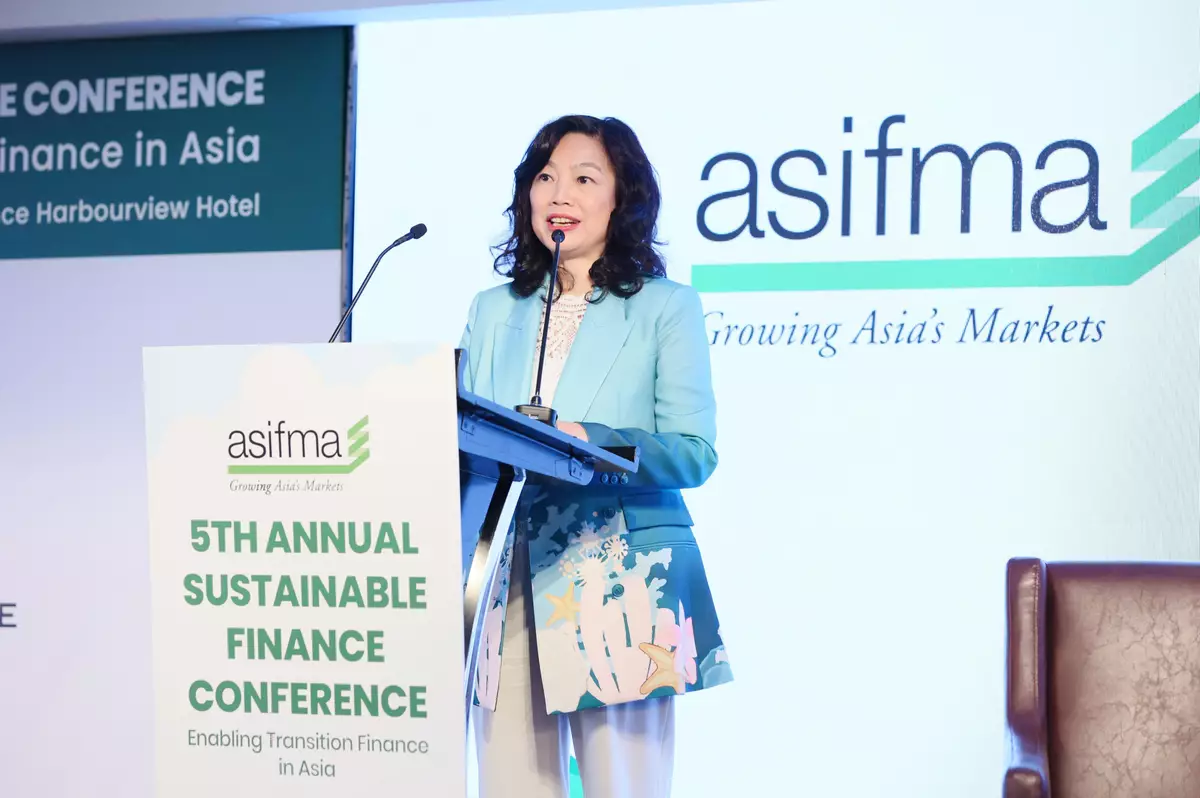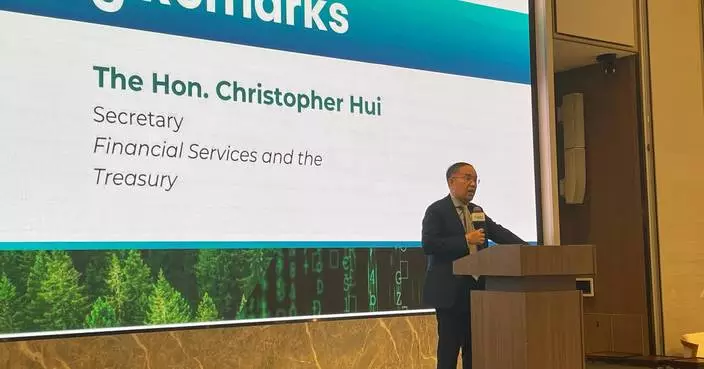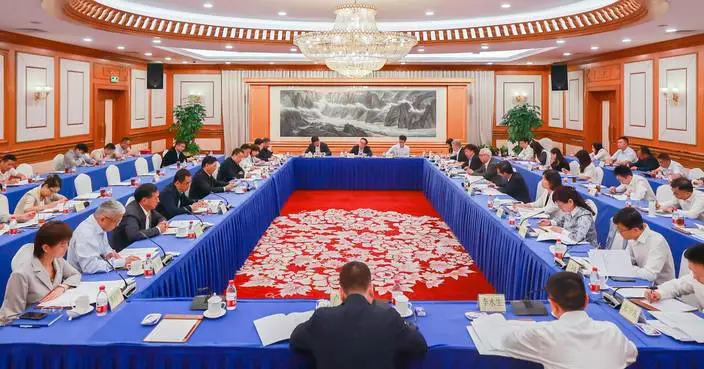FEHD cancels licences of two food factories in Kwun Tong and Sham Shui Po
The Director of Food and Environmental Hygiene today (October 30) cancelled the licences of two food factories in Kwun Tong and Sham Shui Po, as the licensees repeatedly breached the Food Business Regulation (FBR) by operating an unlicensed restaurant and illegally extending the food business area respectively. The two premises concerned have had to cease operation with immediate effect.
The two premises are located at Room A1 on the first floor of King Win Factory Building, 65-67 King Yip Street, Kwun Tong, and at Shop C1 on the ground floor of Kwun Wing Building, 353 - 357 Un Chau Street, Sham Shui Po.
"Six convictions for operating an unlicensed restaurant were recorded against the shop licensee in Kwun Tong this June. A total fine of $18,000 was levied by the court and 75 demerit points were registered against the licensee under the department's demerit points system. In August of this year, two convictions for illegally extending the food business area were recorded against the shop licensee in Sham Shui Po. A total fine of $7,600 was levied by the court and 30 demerit points were registered against the licensee under the department's demerit points system. The contraventions resulted in the cancellation of licences for these two food factories," a spokesman for the Food and Environmental Hygiene Department (FEHD) said.
The licensee of the food factory in Sham Shui Po had a record of four convictions for the same offence between August of last year and May of this year. A total fine of $11,500 was levied and 60 demerit points were registered, resulting in a seven-day and 14-day licence suspension in February and July of this year respectively.
The spokesman reminded licensees of food premises to comply with the FBR and other relevant regulations, or their licences could be suspended or cancelled.
Licensed food premises are required to exhibit their licence and a sign at a conspicuous place of the premises, indicating that the premises have been licensed. A list of licensed food premises is available on the FEHD website (www.fehd.gov.hk/english/licensing/licence-foodPremises-search.html).
Opening address by Permanent Secretary for Financial Services and the Treasury (Financial Services) at ASIFMA's 5th Annual Sustainable Finance Conference: Enabling Transition Finance in Asia
Following is the opening address by the Permanent Secretary for Financial Services and the Treasury (Financial Services), Ms Salina Yan, at the ASIFMA's 5th Annual Sustainable Finance Conference: Enabling Transition Finance in Asia today (October 30):
Peter (Chief Executive Officer of the Asia Securities Industry & Financial Markets Association (ASIFMA), Mr Peter Stein), Boris (Managing Director, Head of Institutional Banking Group of DBS Bank (Hong Kong) Limited, Mr Boris Chan), distinguished guests, ladies and gentlemen,
Good morning. It is my great pleasure to join you today at the 5th Annual Sustainable Finance Conference organised by ASIFMA. ASIFMA's events always draw an inquisitive and enthusiastic crowd with a lot of brain power. Today is no exception, but perhaps with somewhat more seriousness than usual as we are addressing the serious topic of enabling transition finance in the sustainability pathway towards net zero carbon emissions.
The seriousness is compounded when one reads the Asian Development Bank's thematic report on "Asia in the Global Transition to Net Zero" published last year. According to the report, developing Asia accounted for 44 per cent of global greenhouse gas (GHG) emissions in 2019, and growth in the region still tends to rely substantially on emission-intensive activities. Obviously, there is a huge need for transition finance to assist heavy-emitting industries and economic activities to go down the path of net zero while managing economic development implications. Market estimates put the funding gap at over US$3 to 4 trillion in annual investment over the next three decades in the region. Policy trade-offs will certainly be involved in finding the right solutions.
For this, I note a keyword in the topic of the Conference today and that is "enabling". Hong Kong, being an international financial centre as well as a premier sustainable finance hub, is well-positioned to play important enabling roles in expediting Asia's transition to net zero in an enabling or conducive environment.
With well-functioning capital markets offering a wide range of investment products and an international pool of financial services professionals, Hong Kong can contribute to mobilising international capital to finance transition initiatives in the region. We are already doing so and enriching our ecosystem. For example, the number of ESG funds authorised by the Securities and Futures Commission (SFC) has increased significantly in recent years, with assets under management reaching close to US$170 billion as of June this year.
The bond market also helps issuers raise sustainable financing in support of low-carbon transition efforts. The volume of green and sustainable bonds arranged in Hong Kong increased by about five times from around US$6 billion in 2019 to almost US$30 billion last year, topping the Asian market from 2021 to 2023. Among these, the Government Green Bond Programme has issued bonds of various tenors denominated in different currencies including RMB, euro and USD. The programme has recently been expanded to cover sustainable projects. The bonds issuances have been well received by institutional and retail investors alike, and have taken tokenisation form for two recent tranches.
Two points specifically on transition finance:
(a) First, we published the first edition of the Hong Kong Taxonomy for Sustainable Finance in May this year to provide a clear set of definitions or classification of green activities for application by the industry in their green transition journey. It aligns with the two mainstream taxonomies of the Mainland and the European Union, and currently encompasses 12 economic activities under four sectors of power generation, transportation, construction, and water and waste management. The Taxonomy is now under the next phase development, where the scope of sectors and economic activities will be expanded to cover transition activities as well. The Hong Kong Monetary Authority (HKMA) plans to conduct a public consultation on the updated taxonomy prototype in the first half of 2025.
(b) Second, to cater for the increasingly significant need for transition finance in the region, we have expanded the scope of the Green and Sustainable Finance Grant Scheme to cover transition bonds and loans, helping to incentivise relevant industries in the region to make use of Hong Kong's transition financing platform towards the decarbonisation mission. Since its inception in 2021 to mid-October this year, we have granted around $280 million to 470 green and sustainable debt instruments under the Scheme.
Moving into another subject which is important to today's topic, data clarity and transparency is often cited as one of the primary challenges hindering the development of transition finance. Hong Kong operates a highly open and internationalised market aligning with international standards and best practices. We stand ready to promote the adoption of data transparency in the market to facilitate and encourage more transition financing activities.
Earlier this month, for example, the Hong Kong Code of Conduct for ESG Ratings and Data Products Providers was published by an industry working group sponsored by the SFC. Its aim is to establish and promote a globally consistent, interoperable, and proportionate voluntary code for providers offering ESG ratings and data products and services in Hong Kong. The Code was modelled on international best practices recommended by the International Organization of Securities Commissions (IOSCO). It is intended to enhance transparency of methodologies for ESG ratings and data products and improve standards generally across the market with a view to combating greenwashing and instilling integrity in the growing green and sustainable finance ecosystem.
Another important measure on standards is our commitment to launch a roadmap on the full adoption of the ISSB Standards on sustainability disclosure within this year, leading Hong Kong to be among the first jurisdictions in the world to align its local requirements with ISSB Standards. The Hong Kong Institute of Certified Public Accountants has already issued the exposure drafts for consultation. I am sure they will come up with final Hong Kong standards aligning with the ISSB Standards soon. I know that the afternoon session of this Conference has scheduled a dedicated panel to dive deep into this subject. I will spare the detail here.
Blended finance is an evolving concept and is quickly developing. An OECD (Organisation for Economic Co-operation and Development) report defines it as a combination of official development finance, private philanthropic funds and commercial finance where the principal purpose is commercial rather than development. I look forward to the Panel's discussion on this. I would note here that as Asia's primary asset and wealth management hub for international investors, Hong Kong is well placed to harness the finance power of the public and private sectors.
On the home front, the HKMA launched last week the Sustainable Finance Action Agenda, setting out its goals and actions to be taken to further support green and sustainable financing needs in Asia and globally. Under the Agenda, one of the action areas is investment in a sustainable future, under which the HKMA aims to achieve net-zero emissions for the investment portfolio of the Exchange Fund by 2050 through continuing to actively expand the scope and variety of its sustainable investments, particularly those supporting the theme of climate transition across the public and private markets. The Exchange Fund will also deepen its focus on transition opportunities and mobilise stakeholders to actively support this effort through stewardship and engagement.
Another emerging source of funds to support sustainable initiatives comes from philanthropy and impact investing of family offices. In Hong Kong, the philanthropic landscape is underscored by the existence of more than 10 000 charities that have been established in Hong Kong, reflecting a diverse and robust ecosystem of giving. Meanwhile, the global impact investing market, valued at about US$1.6 trillion, attaches growing recognition of the need to address critical challenges such as climate change. We have seen growing interest from family offices in impact investing as they do not just allocate funds for charitable purposes but also seek financial returns and measurable social outcomes. To this end, we will soon consult the industry on proposals to enhance the tax arrangements for funds and single family offices, including expanding the definition of "fund" to cover pension fund and endowment fund, and include emission derivatives and emission allowance as eligible exemption items.
Added to this, Hong Kong is exceptionally well placed to serve the sustainable initiatives and transition needs of entities on the Mainland. Various Mainland local governments including Shenzhen, Hainan Province and Guangdong Province have issued offshore RMB local government bonds including green, blue, sustainability and social bonds in Hong Kong over the past few years. And Core Climate, our carbon credit marketplace, is exploring co-operation initiatives with its Mainland counterparts. We will certainly contribute our best to the country's drive to achieve the goal of peaking carbon emissions by 2030 and reaching net zero by 2060.
Ladies and gentlemen, all these being said, a lot remains to be done. Hong Kong takes our 2050 net zero commitment very seriously and has set up a high-level steering committee comprising policy bureaux with both environmental protection and financial services policy responsibilities, and all financial regulators to co-ordinate and take forward relevant initiatives. Our Financial Secretary is also chairing the Green Technology and Finance Development Committee. We look forward to having your advice and participation in the journey. On this note, I wish you all a rewarding day at the Conference today. Thank you.

Opening address by Permanent Secretary for Financial Services and the Treasury (Financial Services) at ASIFMA's 5th Annual Sustainable Finance Conference: Enabling Transition Finance in Asia Source: HKSAR Government Press Releases






